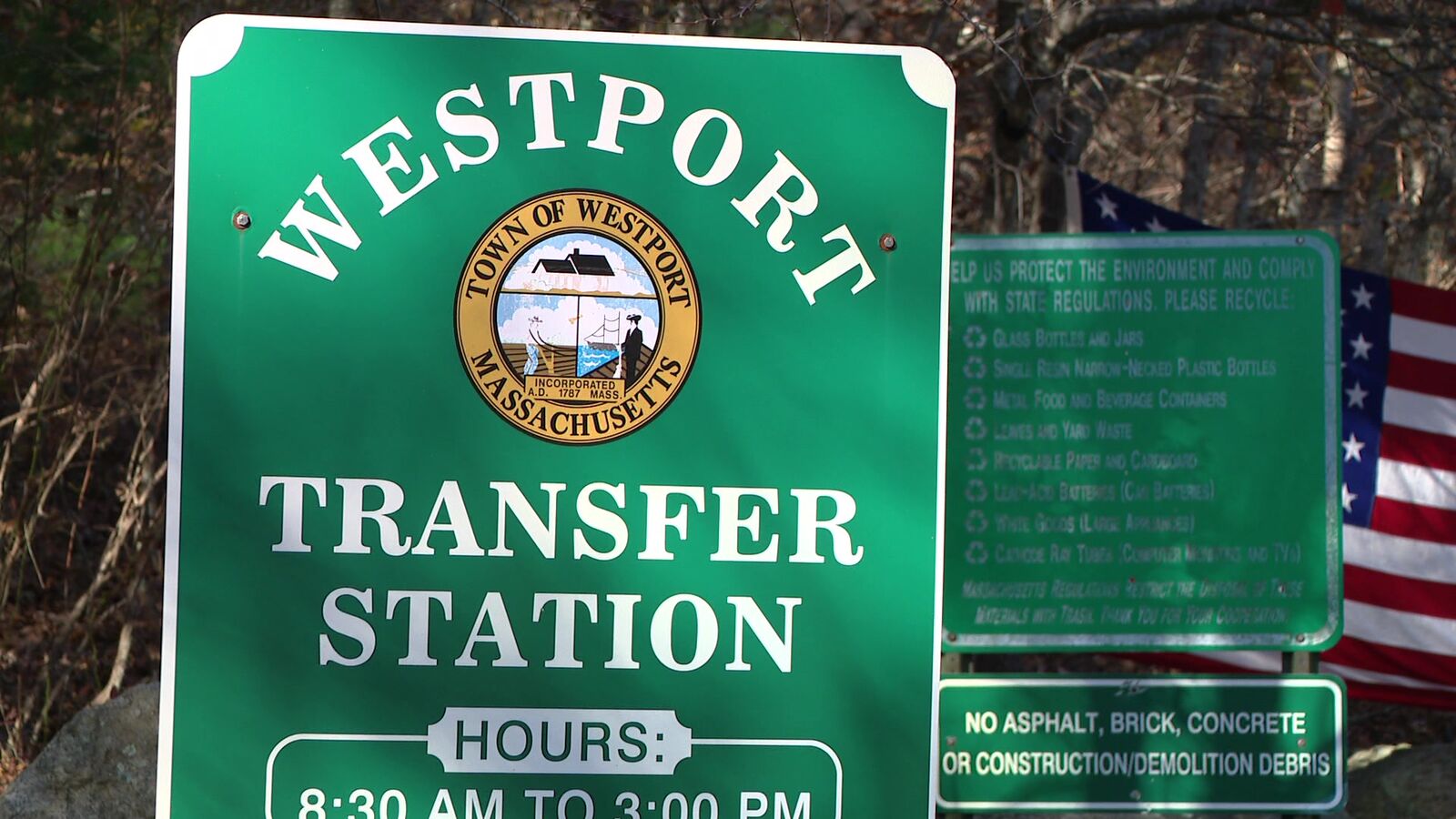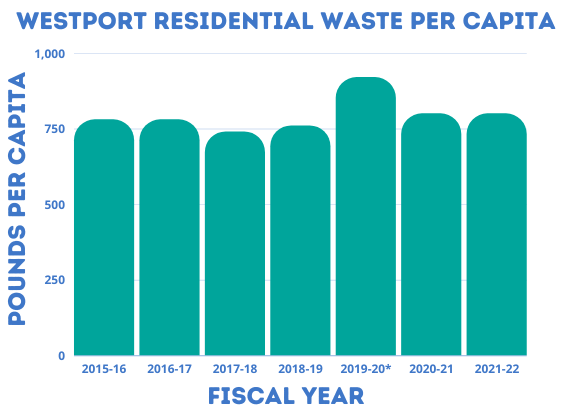NEWS
Westport’s Trash: Increasing Waste and Rising Costs

“Out of sight, Out of mind” is an adage we often hear when it comes to trash. The moment the garbage man arrives at your house, it’s out of your hands and not your problem any longer… but this is NOT the case in Connecticut!
In our July newsletter, we addressed MSW (municipal solid waste, or “trash”) on a state and regional level. Next, we examine the local issues in Westport and how it affects you as an environmental citizen and taxpayer.
What ACTUALLY happens when trash leaves your house?
Private haulers across Westport (there are currently eight options) collect trash and deliver it to the transfer station. Some collect trash and recycling on alternate days while others collect both on the same day into trucks that have separate compartments for each. Alternately, Westport residents are welcome to bring their own trash to the transfer station for dumping, free of charge, during operating hours.
At the transfer station, the contents of the truck are dumped into a pit by the haulers (or manually thrown into the pit by residents). The pit contains a hydraulic ram that serves to compact the trash into a closed trailer. Westport has two pits and thus two compactors. When the trailer is full, it is pulled away from the compactor and a new empty trailer is put in its place. Trailers are then driven to WIN-Wheelabrator, our regional waste-to-energy plant in Bridgeport where the contents are tipped and weighed before incineration. The empty trailers then return to the Westport transfer station.
Who pays for waste management?
All of the haulers that service Westport pay an annual licensing fee to the town based on the number of trucks in their fleet and their respective cubic yard capacity. Other than that, haulers have no other financial responsibility for waste management and do not pay fees to dump (or “tip”) at the transfer station. All other waste management costs are included in the Town of Westport budget, which is funded, as you know, by taxpayers. When the costs to manage waste rise, taxpayers can expect to carry the burden.
What does the town’s waste management budget consist of?
These costs include three primary components: 1. Management of the Westport transfer station; 2. Hauling trash to Wheelebrator and 3. Tip fees for disposal (incineration services) at Wheelebrator.
In 2021, Westport fees to Wheelebrator for transportation and tipping were $16-$17/ton and $65.75/ton respectively. That is far less costly, both in fuel and in CO2 emissions, than trucking the trash out of state to landfills, and it avoids dumping Connecticut trash on other communities. However, these costs still translated to approximately $1.5 million dollars to the town and taxpayers (and that does not even account for recycling, other contract services, or management of the transfer station!). 2022’s current waste expenditures are 13% higher than last year (to date).
Westport is part of a 12 town consortium, the Greater Bridgeport Regional Solid Waste Committee (GBRSWIC), engaged in an Interlocal Agreement with Wheelabrator through 2024. By collectively negotiating as a group, Westport negotiates more competitive pricing and also benefits from more consistent costs for budgeting purposes.
Westport Waste – Sustainability Statistic
In fiscal year 2021-2022, Westport produced 800lbs (.4 tons) of trash per capita. This has increased by 20lbs since fiscal year 2015-16.

As addressed in our recent blog, Connecticut’s waste-to-energy infrastructure is increasingly under strain, which will result in rising costs for the disposal (and recycling) of waste.
Are there alternatives?
Traditional municipal waste disposal programs, whether operated by towns or by private haulers, charge a flat rate for residential waste pick-up. However, PAYT (“Pay as you Throw”) is a new approach to waste that is gaining momentum with support at the national and state level. In this model, households are charged based on the amount of trash they generate (by either volume or weight) rather than through a fixed fee or property tax. PAYT shifts responsibility onto individual households, treating trash like electricity, water or other utilities where there is a variable rate depending on the extent of service utilized. The U.S. Environmental Protection Agency (EPA) strongly encourages the PAYT program because it addresses three intersecting, fundamental issues: Environmental Sustainability, Economic Sustainability, and Equity. There are over 7,000 communities nationwide that offer PAYT programs, nine of which are in Connecticut.
In Connecticut, the Department of Energy and Environmental Protection (DEEP) promotes a PAYT program called SMART (“Save Money and Reduce Trash”). Residents are charged based on unit pricing of waste collected weekly (per gallon, based on the bag sizes sold and distributed by the town). Other than that, the system of collection remains the same. According to DEEP, CT communities that have implemented SMART have reduced waste by 40 – 55%! This translates to an average savings of 200-300 lbs/person/year, not to mention significant municipal savings in transportation and tipping (incineration). By making citizens more aware of their waste, SMART encourages citizens to reuse or donate, recycle, and compost, which may help the state reach its statutory recycling and reduction goal of 40%. While SMART is not mandated, there is current discussion around making this program a mandatory legislation.
Does “trash talk” make you feel overwhelmed? What can you do?
REDUCE, REUSE, RECYCLE and DIVERT FOOD WASTE. AND SPREAD THE MESSAGE.
Every little bit does make a difference! Be thoughtful in your purchasing and favor reusable over disposable (even if it requires a bit more money or personal energy). Repair broken items instead of tossing them away. And the great news is that Westport has a number of programs currently in place to assist and support your efforts to reduce overall waste:
- Separate your glass from other recycling and deposit at the transfer station
- Redeem your cans and bottles at participating facilities
- Join the Zero Food Waste Challenge
- Learn about all the other items that can be individually recycled and where!